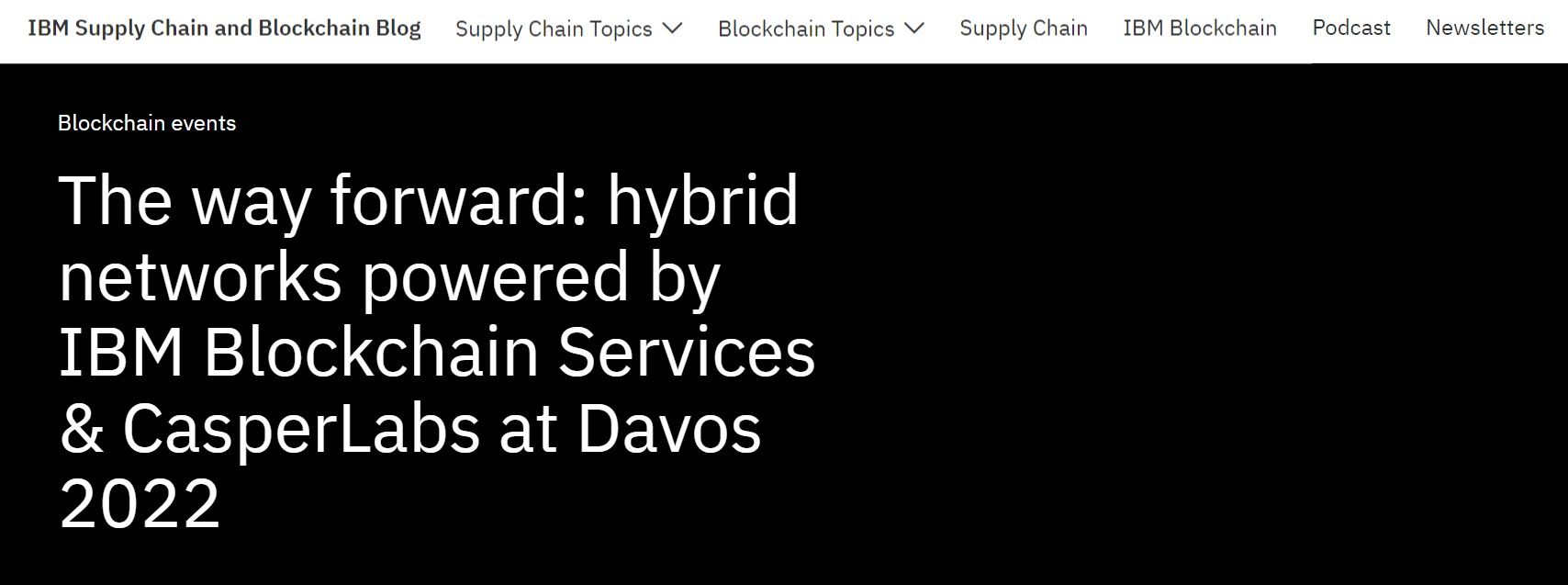What is a hybrid blockchain and how does it differ from a regular blockchain?
Governments, businesses and other organizations have started to adopt blockchains to manage data and provide better solutions. But there is no one-size-fits-all regarding blockchains. There are different types.
Typically, you will find public and private blockchains. However, a more unusual option is available – hybrid blockchains, which offer the best of both worlds.
What is a hybrid blockchain and how does it work?
A hybrid blockchain is a unique type of blockchain that derives its functions from public and private blockchains. It is a mix of both blockchains; the public and private aspects of hybrid blockchain work hand in hand.
Because it is open and accessible, the public blockchain verifies transaction data via a blockchain consensus mechanism. The data is then stored in the private blockchain, accessible only to those with permission.
This merger balances transparency, privacy and security with several potential applications in finance, governance and supply chain management industries.
Those running hybrid blockchain-based companies cannot change the transactions and data in the decentralized ledger because it is immutable. However, they can keep the identity of new participants hidden from the other network members, revealing them only after they have completed transactions with other participants.
Advantages and Disadvantages of Hybrid Blockchain
Hybrid blockchains have some advantages and disadvantages:
- Anonymity: As the hybrid blockchain is closed, you can remain anonymous and communicate fully with third parties. This anonymity enables companies and industries to deal evenly with shareholders, as their information will not be leaked to the public.
- Fast transactions, easier control and full scalability: Hybrid blockchains are ultra-fast and scalable compared to public blockchains. Unlike private blockchains, they are also easier to control.
- Cheap transaction costs: Public blockchains’ transaction costs are expensive, with the many nodes contributing to this problem. But with hybrid blockchains, transaction fees can be as low as $0.01 because the (fewer) nodes on the network are powerful and highly efficient. Also, hybrid blockchains do not need other blockchains to verify data, making transaction costs cheaper.
- Adaptation: Unlike other blockchains with strict infrastructure, hybrid blockchains have flexibility in terms of decentralized ledger settings. For example, participants can decide which transactions are private or public, so that the network can be adapted to meet the needs of the industry. And because only the level of decentralization can be changed, not the transactions, the process is transparent and reliable.
- Data security: Data on the hybrid blockchain network is secure and immutable by influential nodes. This protects the network from 51% attacks, as the network is “permission” and restricted.
- Decentralized access: Hybrid blockchains have a decentralized network accessible to all permitted participants.
- Difficult to scale and no less transparent: The network can be difficult to upgrade because the incentives for members’ participation are limited. In addition, the process is not as transparent as public blockchains because data can be shielded.
The applications of hybrid blockchain in different sectors
As mentioned earlier, hybrid blockchains have several applications in various sectors and industries.
1. Internet of Things
Internet of Things (IoT) devices, due to their wireless connectivity and data transmission, are vulnerable to cyber attacks. By preventing data breaches, unauthorized access, and other potential security threats, hybrid blockchains can thwart the efforts of these malicious entities.
Moreover, hybrid blockchains can enable devices to work together seamlessly by simplifying the integration process of different IoT devices via smart contracts. And if you use any IoT devices running on hybrid blockchains, you can rest assured that your user data is private and confidential.
2. Companies, businesses and supply chains
With hybrid blockchains, companies can show records to the public while keeping some data private. Meanwhile, businesses can improve transparency, reliability and trust by automating services for consumers and employees.
In addition, supply chains such as retailers can use hybrid blockchain technology to fine-tune operations and highly regulated processes. IBM Food Trust and Walmart are good examples of companies that have used hybrid technology in the supply chain.
For example, the IBM Food Trust has farmers, distributors and wholesalers in its hybrid blockchain network. It gives different groups access to a private blockchain containing transactions unique to them, while using the public blockchain component to share information across the different groups.
3. Global trade and finance
Crypto-based platforms use hybrid blockchain technology in commerce and finance globally. The banking industry can also benefit from hybrid blockchains due to their responsibility to secure user data and privacy.
4. The government
Governments can use hybrid blockchain technology to build and manage public identification databases, conduct electoral processes, deliver humanitarian and social aid to citizens, store complex data such as medical records and automate procurement processes. All of these processes require public access, but still give the authorities total control. The authorities can easily and securely share this data with their various institutions.
2 examples of hybrid blockchain
Here are two specific examples of institutions incorporating hybrid blockchains.
1. XinFin (XDC)
XinFin is an EVM-compatible hybrid blockchain that uses efficient, accessible and versatile decentralized solutions to modernize the global finance and trade sector. The company complements financial systems by supporting them with a permissioned and restricted blockchain that private firms, governments and businesses can use to offer better solutions. Its digital token is XDC.
XinFin was one of the first companies to use smart contracts and delegated proof-of-stake (DPoS) consensus (instead of proof-of-stake), with IoT heavily featured. This feature makes the network fast, as transactions are completed within two seconds and transaction fees are low.
XinFin helps solve cross-border transaction issues and limited blockchain technology applications in the global financial sector. The platform uses the best features of IBM’s Quorum private blockchain platform and Ethereum, a public blockchain. And it is strongly expressed in aviation, payroll systems, supply chain logistics, HR, international finance and trade settlements.
2. IBM Hybrid Blockchain
In 2022, IBM blockchain Services and CasperLabs announced the combination of IBM’s Hyperledger Fabric private blockchain and Casper’s public blockchain capabilities. This combination provides increased security, an open market and public verifiability.
IPwe, powered by the IBM hybrid blockchain, has published the first blockchain-powered global registry, freely collecting patent records. And IPwe is on its way to symbolizing patents and patent attributes. The tokens will be easily traded, licensed and transferred with smart contracts.
Hybrid blockchain is a revolutionary technology
In a couple of years from now, more organizations and industries will probably adopt hybrid blockchain. Industries that require high levels of transparency, security, privacy and traceability have the potential to benefit the most from this revolutionary technology.





